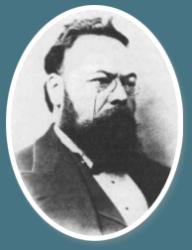SYMPATHETIC RELATIONS BETWEEN THE ANUS AND THE HEAD.
One very frequently observes an intimate sympathy between the anal region and the head. Let me relate a case in point. A gentleman of sixty was under my care for haemorrhoids and nocturnal pruritus ani that at times was maddening, and which had worried him for many years, and for the cure of which an almost endless array of local applications had been used in vain. He used to have attacks of giddiness and faintings, and he also had a small lipoma in the poll. What distressed him most was the pruritus ani, due, he thought, to thread worms. My treatment cured his giddiness, but the anal itchings grew rather worse than better. I will here interpolate the remark that whisky often causes itchings at the seat at night, and then the cure consists in leaving off the whisky. But this gentleman did not take whisky, being a teetotaller for many years.
The only time in his life he had ever obtained a respite form his pruritus was from the cure at kissingen, so to kissingen he would go, though I tried to dissuade him from it.
The Kissingen cure was effectual, for he returned without the pruritus ani. However, not every long after his return from Kissingen, cured of the pruritus, he had a “fit”, consisting in a long fainting attack, evidently cephalic, and he became very giddy and habitually unsteady in his gait, so that he was afraid to go about. Moreover he then got partial ptosis, notably of the left side. In this state the returned under my care. Zincum aceticum put his head quite right, and he feels now perfectly well and sure of gait, and free from faintings, and the ptosis is better, but the nightly itchings at the anus have returned. For these and for the lump in the neck (which, however, is decreased) he remains under my treatment, I should say that patient carries on an enormous business, and often sits up half the night intensely occupied with intricate calculations, while on Sunday be takes a complete rest in the from of preaching and Sunday- school teaching. He is a grand man, but whether the Master’s work, at this time of day, needs such a sacrifice may be questioned.
My own opinion is that a labourer is worthy of his-rest.
But my point here is the sympathy between the anal region and the head.
By the way, for a fagged brain Zincum aceticum 1x, five drops in water night and morning, is indeed mighty for good (see Rademacher’s experiment in “Erfahrungsheillehre”).

